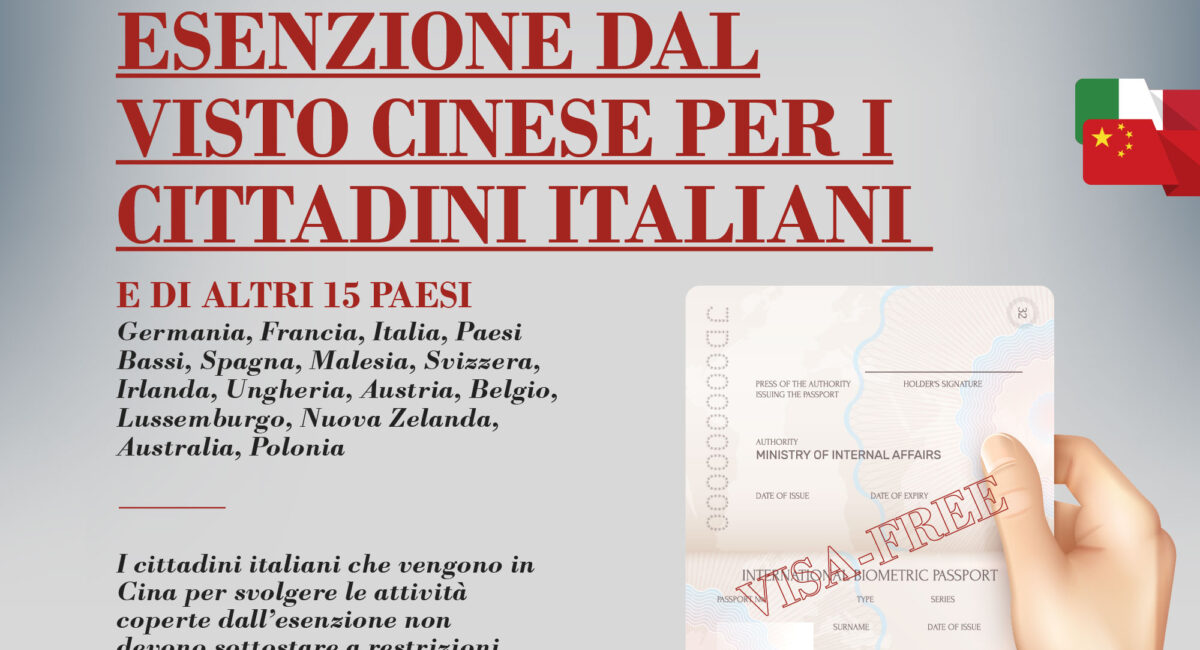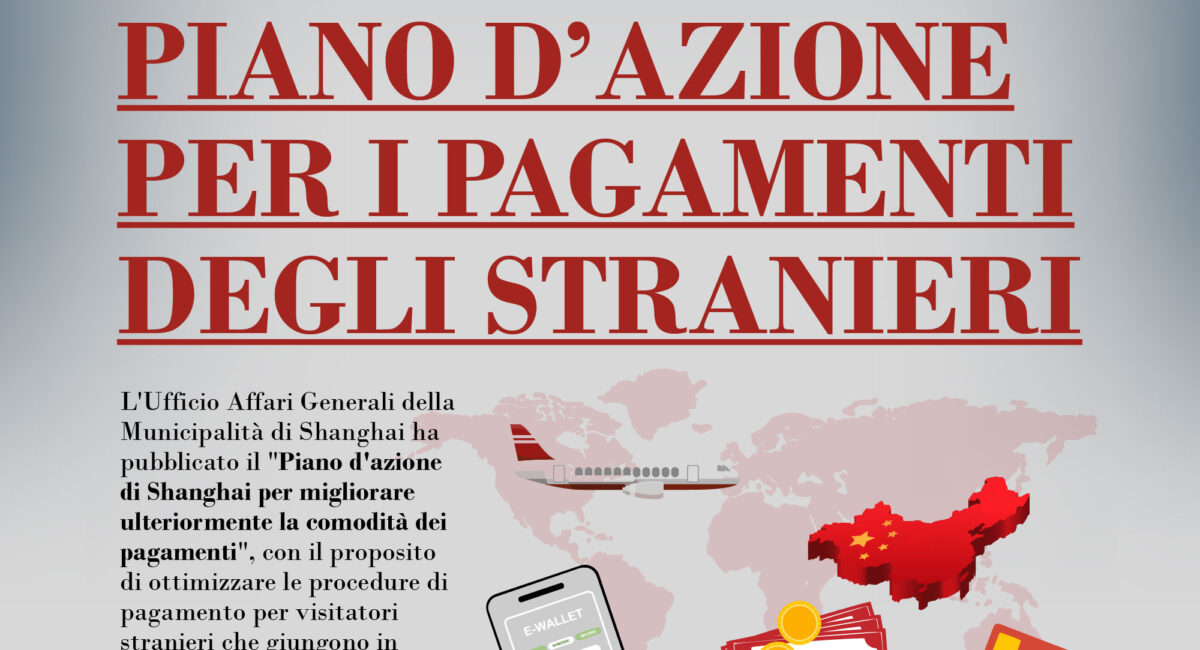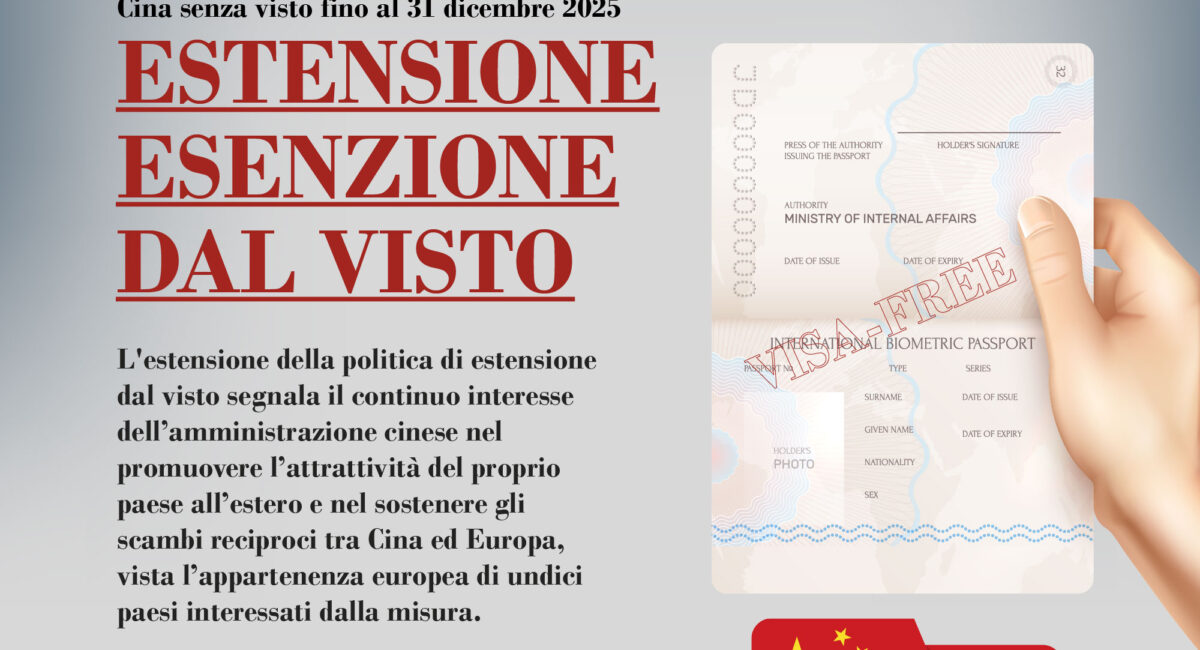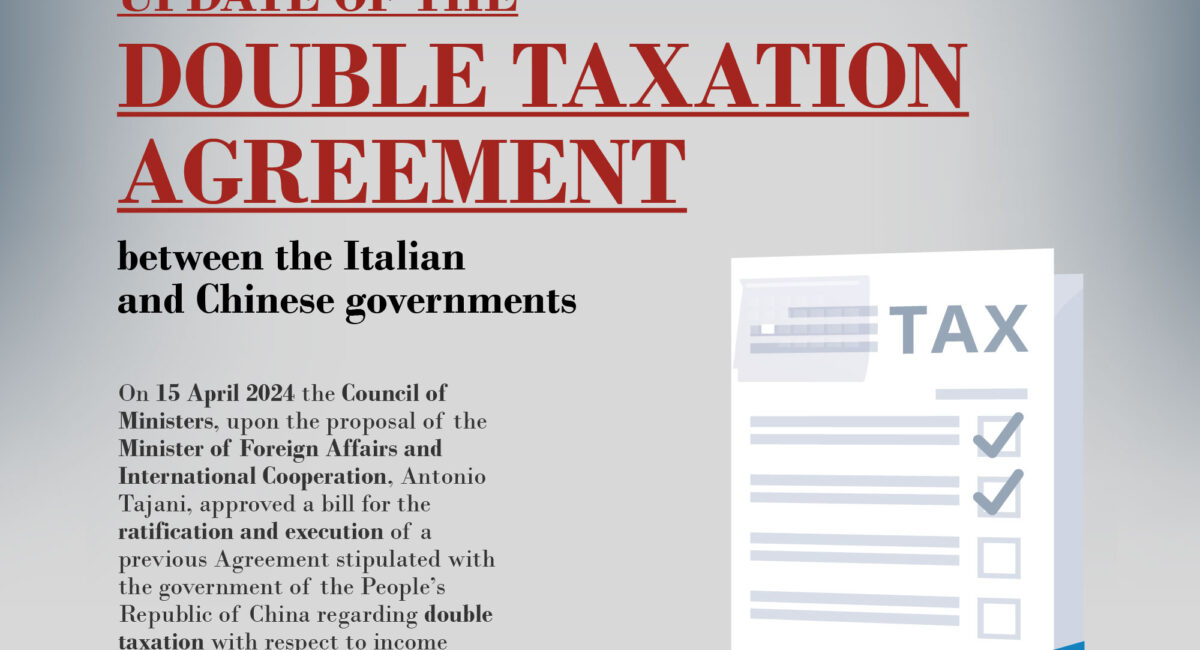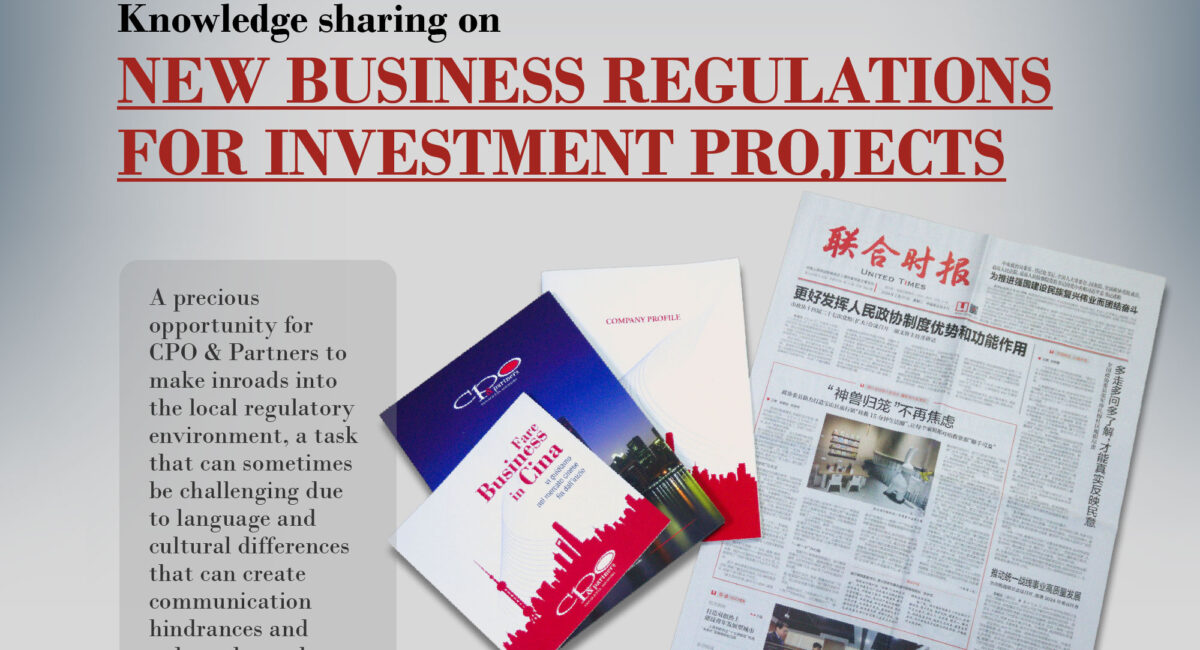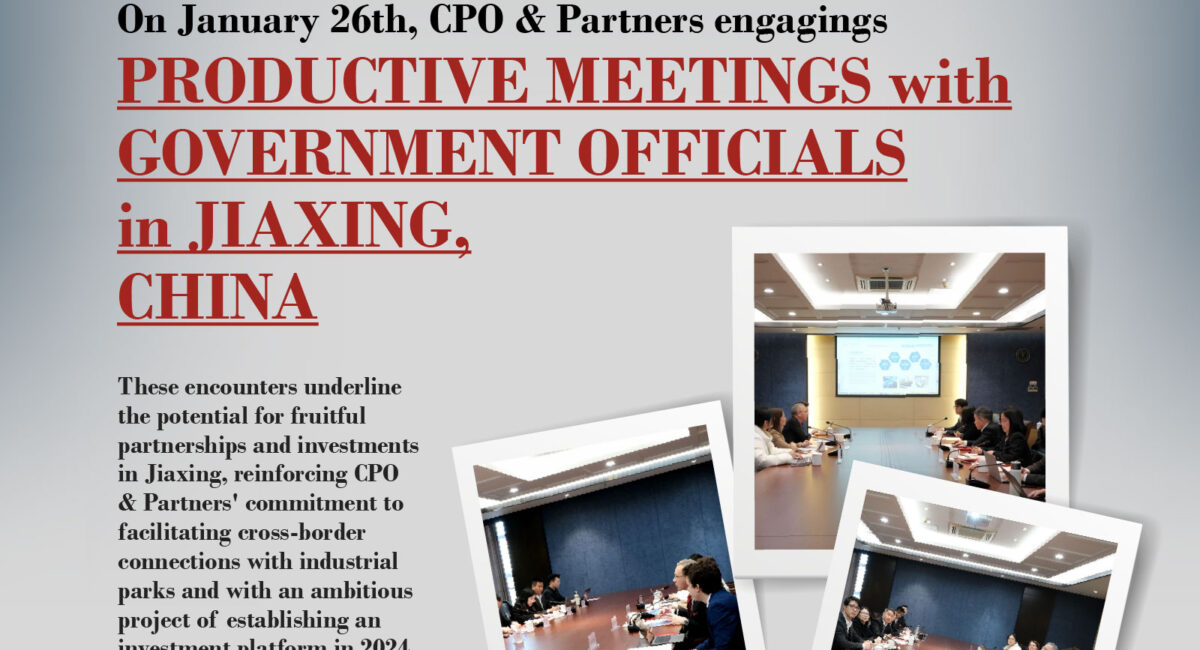
Negotiations between China and Peru
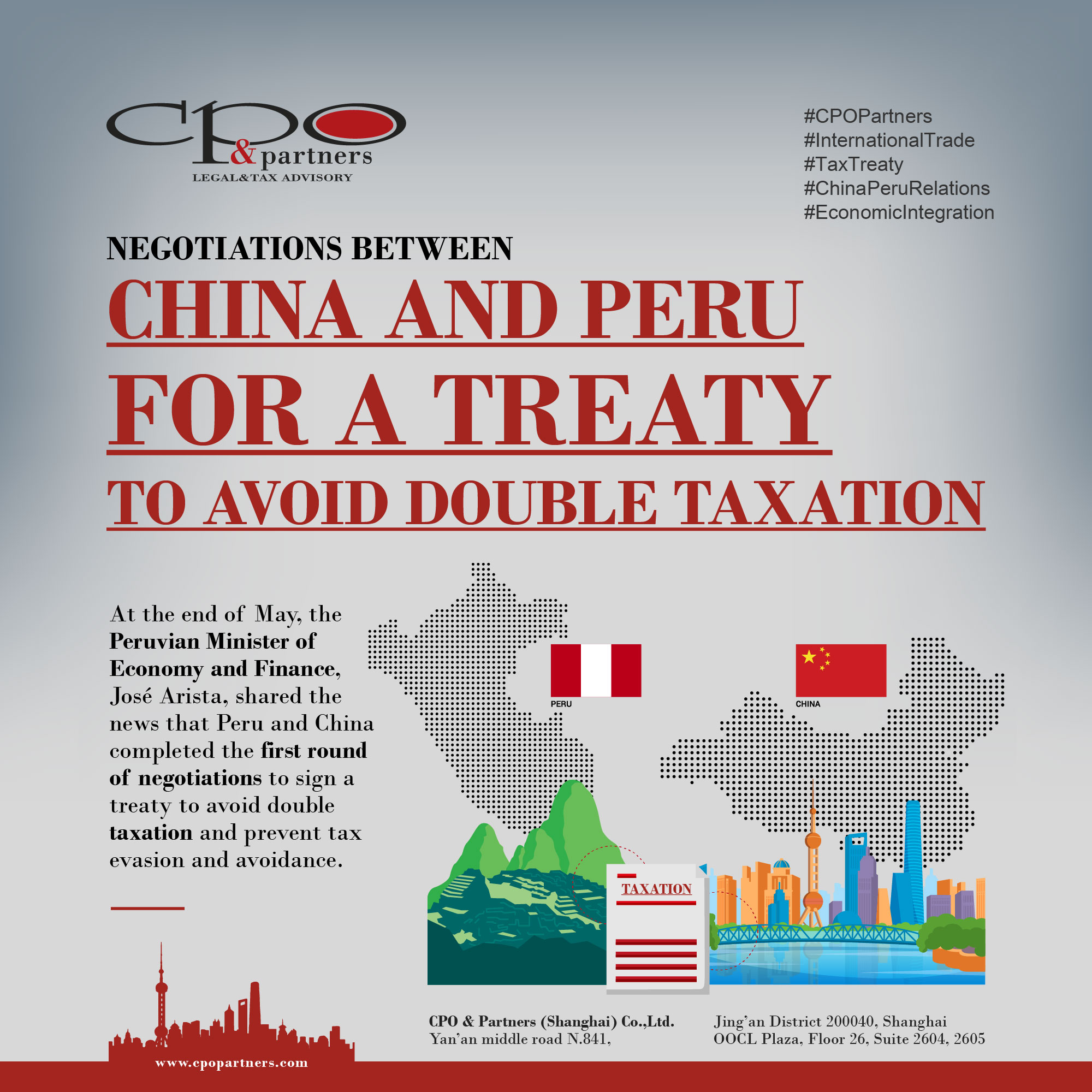
Negotiations between China and Peru for a Treaty to avoid double taxation
At the end of May, the Peruvian Minister of Economy and Finance, José Arista, shared the news that Peru and China completed the first round of negotiations to sign a treaty to avoid double taxation and prevent tax evasion and avoidance. A second round is expected to start in November of this year, which could lead to the final signing and ratification between the parties. The agreement will touch upon the fields of trade in goods and services and of investments, by reaching a greater integration between the respective economies. The planned treaty signals the importance of the Peruvian market for China, considering that the Asian nation is the first destination for Peru’s exports, for an amount of 23 billion dollars in 2023. In recent years, China has also been keen in investing in the country, especially in the mining, energy and transportation sectors. The new agreement will reinforce the legal institutional framework already existing between China and Peru, which signed a Free Trade Agreement in April 2009.
Shanghai, Piano d’azione per facilitare i pagamenti degli stranieri
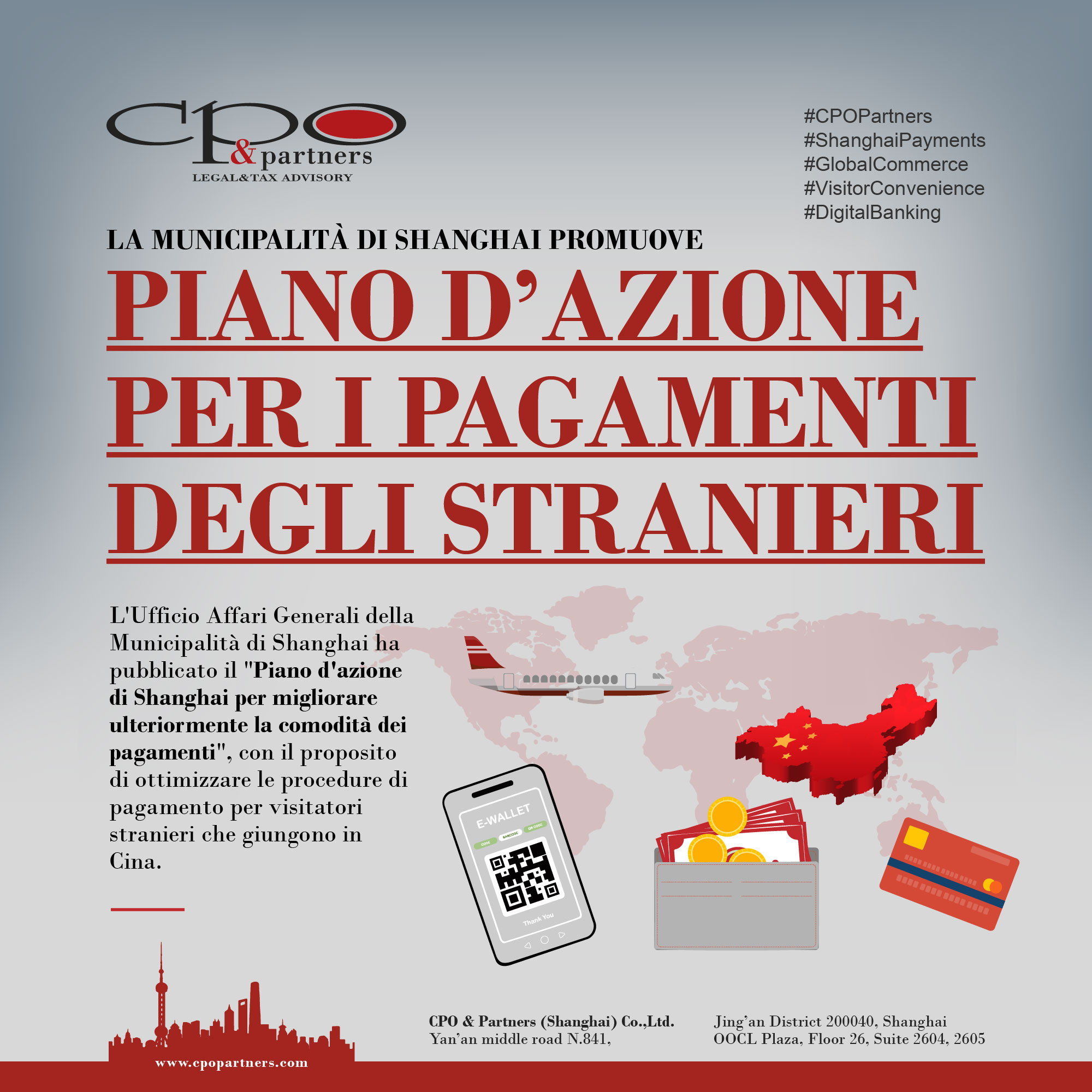
La Municipalità di Shanghai promuove un piano d’azione per facilitare i pagamenti degli stranieri
L’Ufficio Affari Generali della Municipalità di Shanghai ha pubblicato il “Piano d’azione di Shanghai per migliorare ulteriormente la comodità dei pagamenti“, con il proposito di ottimizzare le procedure di pagamento per visitatori stranieri che giungono in Cina.
Gli obiettivi previsti riguarderanno le seguenti aree:
– Una più vasta accettazione delle carte bancarie estere presso luoghi chiave come ristoranti, supermercati, farmacie, ospedali, attrazioni turistiche, hotel, centri di trasporto;
– Un aumento della disponibilità di ATM presso cui sia possibile prelevare con carte bancarie straniere e il mantenimento di canali di pagamento in contanti, oltre ad una maggiore presenza di punti di cambio valuta estera;
– L’ottimizzazione dei servizi di pagamento da mobile, facilitando l’utilizzo dei pagamenti tramite “collegamento di carta straniera” sulle principali piattaforme locali (WeChat Pay, Alipay);
– La semplificazione dei servizi relativi ai conti bancari per stranieri, dalla prenotazione online per apertura del conto alla possibilità di usufruire di servizi multilingue;
– Una maggiore integrazione dei servizi, con creazione di aree dedicate negli aeroporti di Pudong e Hongqiao e negli hotel stellati, dove i visitatori possano acquistare carte per il trasporto cittadino e cambiare valuta, ricevendo moneta locale anche in contanti di piccola taglia;
– Una maggiore attività comunicativa, in modo da promuovere agli stranieri le nuove misure attraverso l’uso di guide, video promozionali e strutture di consulenza dedicate.
Il piano proposto da Shanghai è in linea con le misure proposte per l’intero territorio nazionale cinese. La difficoltà di effettuare pagamenti con l’uso di carte bancarie straniere rappresenta infatti un’altra barriera, oltre a quelle linguistiche e culturali, che i visitatori in arrivo in Cina si trovano ad affrontare, rendendo una facilitazione in merito sempre più necessaria.
Per maggiori informazioni:
https://www.shanghai.gov.cn/nw12344/20240430/17d55b402ea04e3eadb86983b1850681.html)
CPO a fianco dei clienti alla Design Shanghai 2024

CPO a fianco dei clienti alla Design Shanghai 2024
Uno degli eventi di design internazionale più prestigiosi al mondo, il principale in Asia. Arricchito dalla sezione dedicata ai giovani talenti emergenti, sempre all’avanguardia, è tenuto in grande considerazione dalla comunità del design internazionale.
Si tiene in questi giorni al Shanghai World Expo Exhibition & Convention Center (la sede di Expo 2010) e tenta di esplorare come le filosofie di design orientali e occidentali possano lavorare sinergicamente. Numerosi gli espositori italiani che, dopo il Salone di Milano, approcciano la Cina e l’Asia attraverso il ponte offerto da Shanghai.
Cina, estensione esenzione dal visto
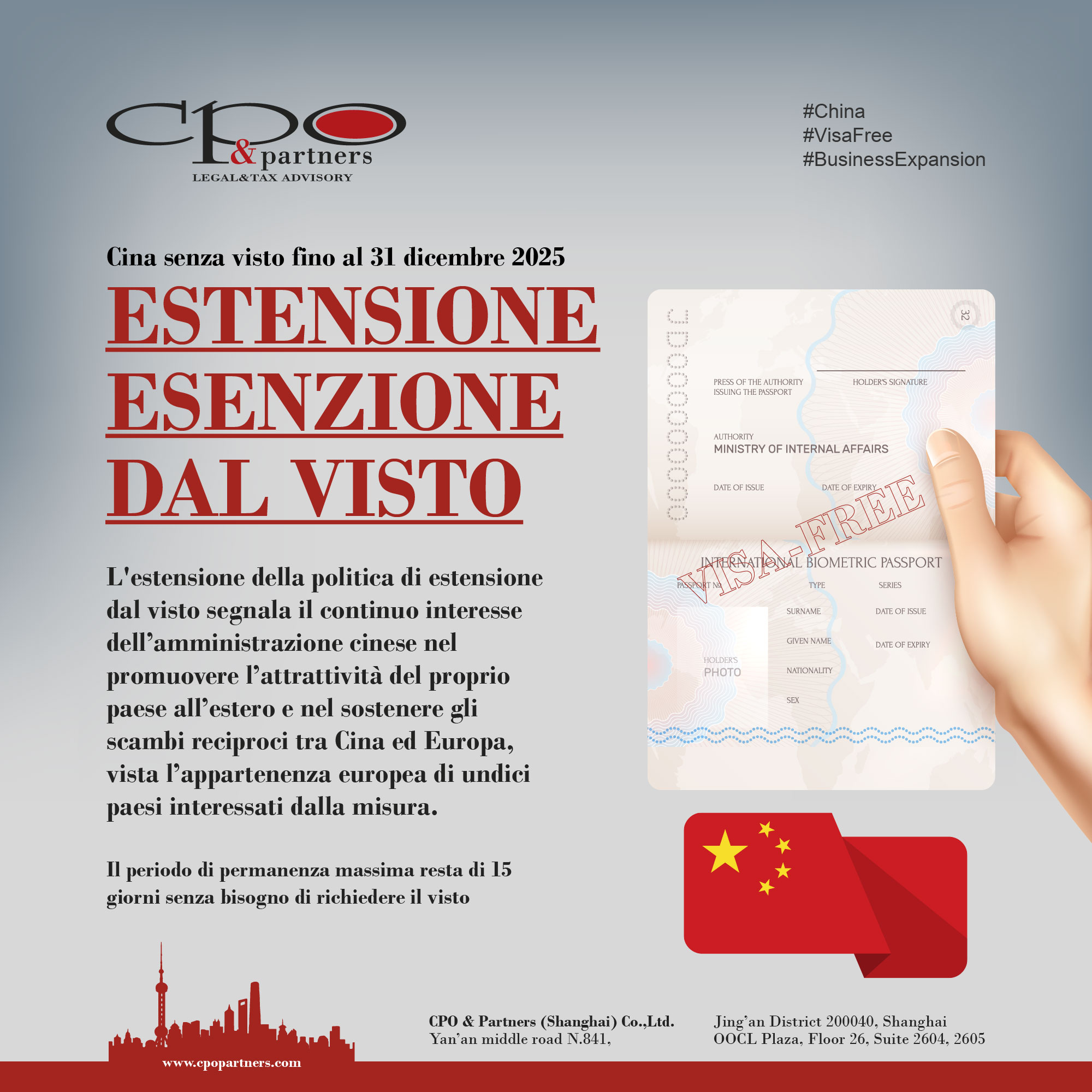
A seguito dell’annuncio ufficiale da parte del portavoce del Ministero degli Affari Esteri cinese lo scorso 7 maggio, il governo della Repubblica Popolare Cinese ha deciso di estendere la politica di esenzione dal visto introdotta alla fine del 2023.
L’anno scorso era stata ufficialmente concessa la possibilità, inizialmente ai cittadini di Italia, Francia, Germania, Paesi Bassi, Spagna e Malesia (poi estesa ad un totale di dodici paesi) di entrare nel territorio cinese per affari, turismo, visite a parenti e amici e transito per un periodo di permanenza di massimo 15 giorni senza bisogno di richiedere il visto. La misura, rivolta ai titolari di passaporti ordinari, era inizialmente in vigore dal 1 dicembre 2023 al 30 novembre 2024. Grazie alla recente estensione, i connazionali italiani e i cittadini degli altri paesi coinvolti potranno entrare in Cina senza visto per i motivi sopra menzionati fino al 31 dicembre 2025.
L’estensione della politica di estensione dal visto segnala il continuo interesse dell’amministrazione cinese nel promuovere l’attrattività del proprio paese all’estero e nel sostenere gli scambi reciproci tra Cina ed Europa, vista l’appartenenza europea di undici paesi interessati dalla misura.
Update of the double taxation Agreement
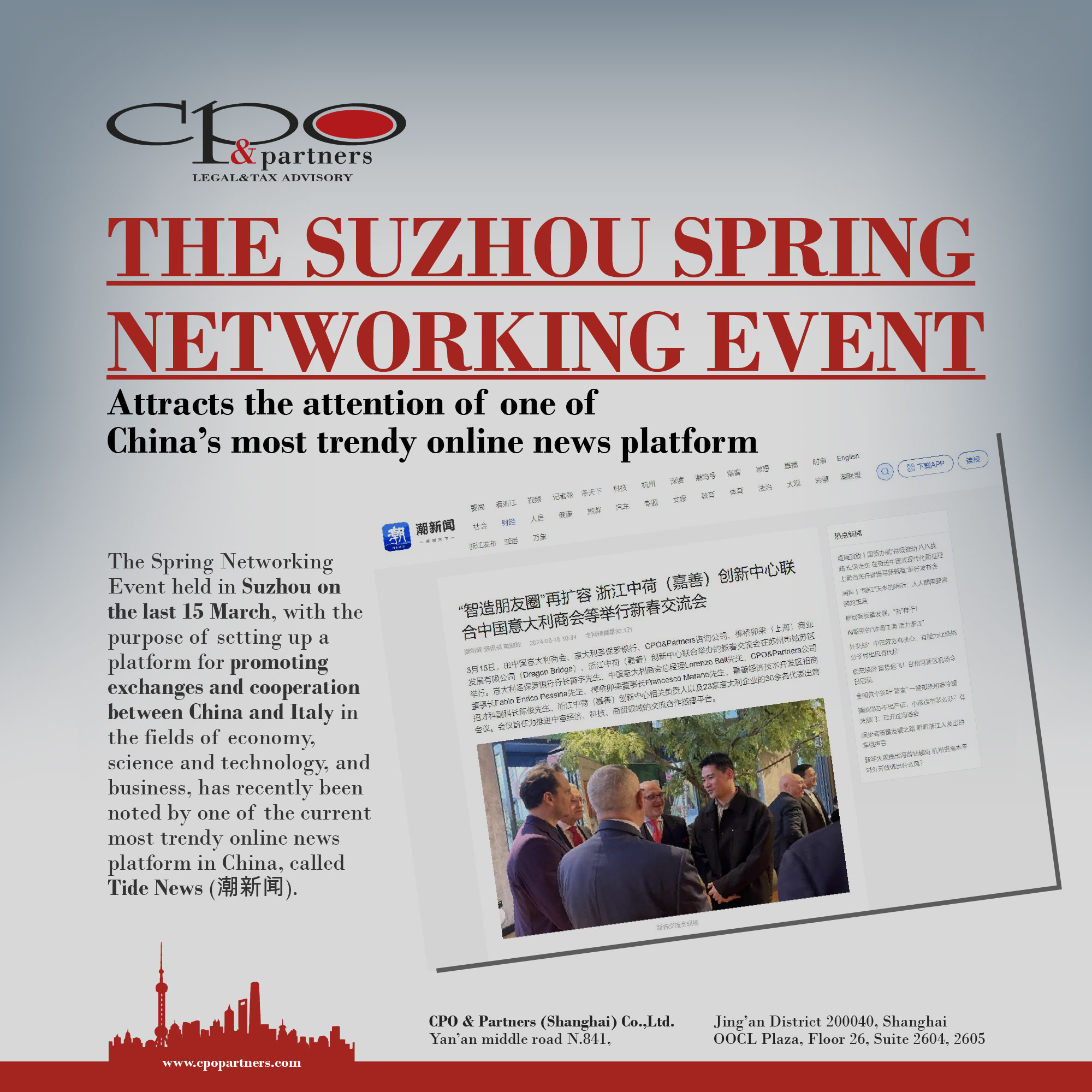
Update of the double taxation Agreement between the Italian and Chinese governments
On 15 April 2024 the Council of Ministers, upon the proposal of the Minister of Foreign Affairs and International Cooperation, Antonio Tajani, approved a bill for the ratification and execution of a previous Agreement stipulated with the government of the People’s Republic of China regarding double taxation with respect to income taxes and the prevention of tax evasion and avoidance.
The text approved on 15 April updates the already existing Agreement signed between the two States on 31 October 1986, in order to adapt the legislation to the recommendations of the OECD/G20 BEPS (Base Erosion and Profit Shifting) project.
The updated Agreement applies to residents of the contracting States, and for Italy in particular relates to IRPEF, IRES and IRAP taxes, by setting general and subsidiary criteria through which defining a person as “resident of a Contracting State”, and by clarifying the cases in which a “permanent establishment” is involved.
The approved text regulates specific topics related to the double taxation issue, among which there are: taxability of real estate income, which must be taxed in the State in which the real estate that represents the income source is located (albeit in a non-exclusive manner); the treatment of business profits, as well as profits deriving from the operation, in international traffic, of ships or aircrafts; taxation rules for capital income regarding dividends, interest, royalties and capital gains; distribution of taxation in the two contracting States in relation to: independent professions, subordinate work, members of management and supervisory boards, remuneration from artistic and sporting activities, as well as sums received as pensions or for other public functions performed; the criterion of exclusive taxation in the State of residence for any other residual type of non-mentioned income; the methods for eliminating double taxation, in accordance with the domestic legislation of each contracting State; anti-abuse provisions, the principle of non-discrimination, the mechanism of the amicable procedure for the resolution of disputes, and the exchange of information between the two States.
This initiative signals the intention of both governments to improve the condition of Italian companies operating in China and to give more certainty to Chinese investors interested in or already engaged with the Italian business environment.
Knowledge sharing on new business regulations for investment projects
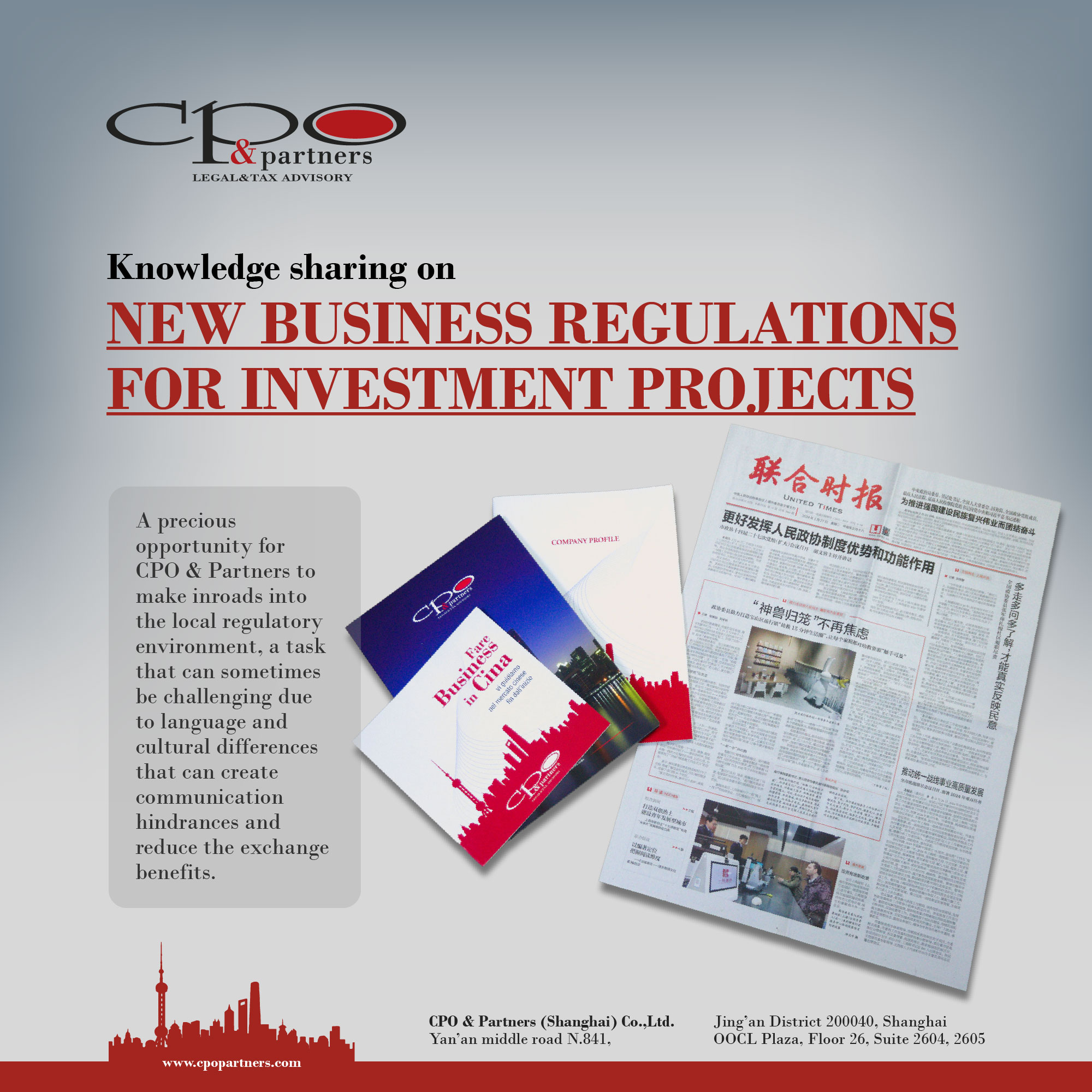
The business regulatory environment in China is in constant evolution, prompting local administrations to understand, manage, and carry out the new regulations issued at the national and provincial level, a task that can be burdensome due to the complexity of the matters involved. Recently, the Shanghai Municipality issued the «Shanghai Action Plan to Adhere to Benchmark Reform and Continuously Create a World-Class Business Environment», whose main intent is to reach a greater optimization of the business environment in China, so as to attract top-quality domestic and international companies.
As a legal and tax consultancy firm with a solid footprint in Shanghai, CPO & Partners went to visit the Jing’an Administrative Service Center to have a meeting with the district administration on the new policies for investment projects found in the «Shanghai Action Plan».
This represents a precious opportunity for CPO & Partners to make inroads into the local regulatory environment, a task that can sometimes be challenging due to language and cultural differences that can create communication hindrances and reduce the exchange benefits. Moreover, dealing with the district authorities is a good way to network with local offices and understand their functioning, in the belief that only by properly knowing the administrative system one can accurately provide consultation, in order to reach a win-win outcome that is advantageous for both parties.
Productive meetings with government officials in Jiaxing

On January 26th, CPO & Partners had the privilege of engaging in a series of productive meetings with government officials in Jiaxing, China. The discussions centered on the diverse investment opportunities available in the region, highlighting Jiaxing’s commitment to fostering a conducive environment in Jiaxing for international business collaborations.
The visit was further enriched by an immersive experience in Science City, a hub of innovation and technology that exemplifies the forward-thinking ethos of Jiaxing. Additionally, we had the opportunity to visit CEBI, a renowned company in the automotive sector, which stands as a testament to the robust industrial capabilities and business-friendly policies in place.
These encounters underline the potential for fruitful partnerships and investments in Jiaxing, reinforcing CPO & Partners’ commitment to facilitating cross-border connections with industrial parks, with the project for year 2024 to create an investment platform for foreign companies that could be guided in the difficult interpretation of rules and choice of the most proper location for their investments. We remain dedicated to exploring avenues that benefit our clients and contribute to the economic development of the regions in which we operate.
Companies established after the enforcement of the new Company Law


